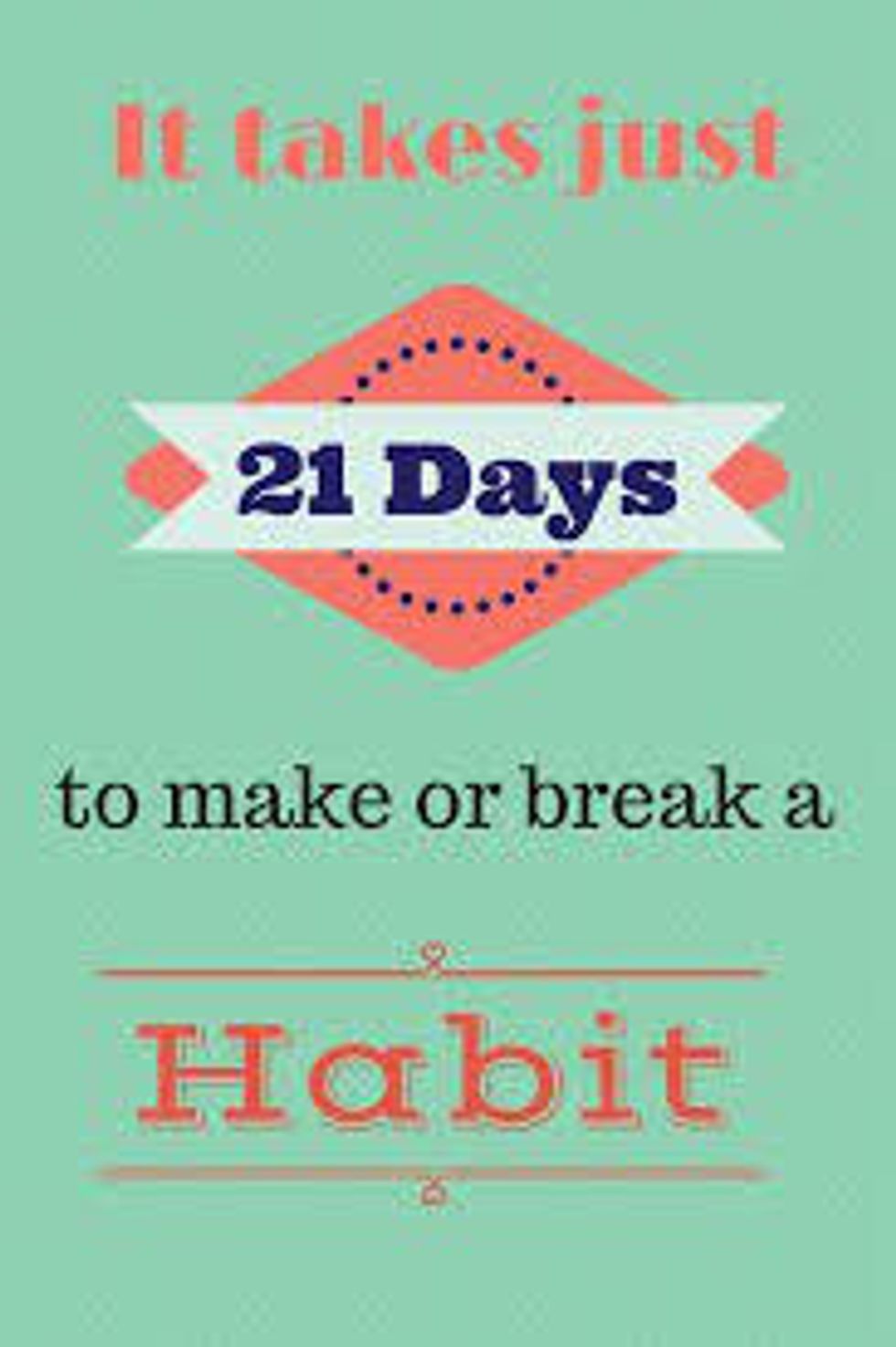It's the new year! 2016 is finally over and it's time to decide how you want to change yourself for 2017. After all, new year new you, right? Is it your goal to lose weight? Eat healthier? Make a job change? Whatever it is, go out and do it now! Seize the day! Never mind the fact that only one in five people keep their resolutions! You'll be that one, right? WRONG
The problem with the way many people make their resolutions is that they have a big, long term goal in mind, but with work, family and friends, that goal has fallen by the wayside by Valentine's Day. It's hard to stick to a goal when it seems daunting and impossible to achieve. Or you came up with a resolution that's so small and easy to accomplish that it only takes a few weeks and you can tell yourself that you've achieved a goal already this year. But what do you do with your new self during the rest of the year?
The key is to making and keeping your resolution is to take a big idea, like losing weight or getting a promotion, and divide it into smaller, short-term goals throughout the year. In order to do this, you need to get specific about what you want to do to accomplish the long term goal. If your goal is to lose weight, you need to decide if you'll achieve that by going to the gym more, eating healthier, or a combination of the two. Once you've decided that, you can start making your short term goals. For example, you can start January by cutting down on sugar in your diet, start going to the gym twice a week in February, then bump that up to three or four times in March, etc. This way, you have smaller goals that are easier to accomplish, and you end up feeling more successful.
This can be applied to any kind of long term goal. If you're working towards a promotion, take some time to figure out what qualities your supervisors are looking for in that position, and work on improving a new one each month. The key is to keep building on the last month's progress, so that you keep moving forward. Another key is to be specific about your goals; if it's too vague, it can be hard to tell if it's really been accomplished or not. So instead of saying "I will not procrastinate," say "I will dedicate more time to my work and submit everything __ hours before it is due."
And remember not to be discouraged. It takes 21 days to form a habit, so the first couple of days will be the hardest. If it feels awkward or challenging to start that task at first, keep pushing through and making adjustments as you go. If you're trying to start making breakfast in the morning, you might need to wake up a little earlier, but that's something else you'll adjust to in those 21 days. After those three weeks, you'll find that it's easier to keep up your new habit than stop.
Overall, your resolution doesn't have to be a challenging, impossible thing. If you slow it down, and take things 21 days or a month at a time, you'll find that it's much easier to stick to your goal, whatever it may be. I've given just a few examples of resolutions here, but this technique works for just about anything. Now the only question is: what are you waiting for?







































